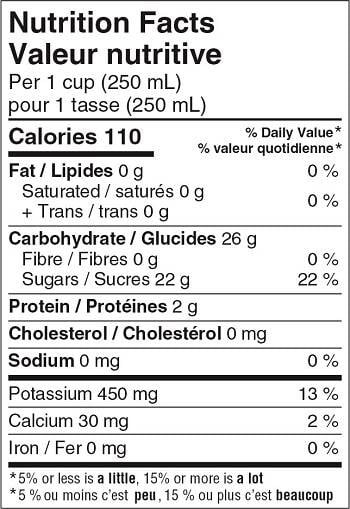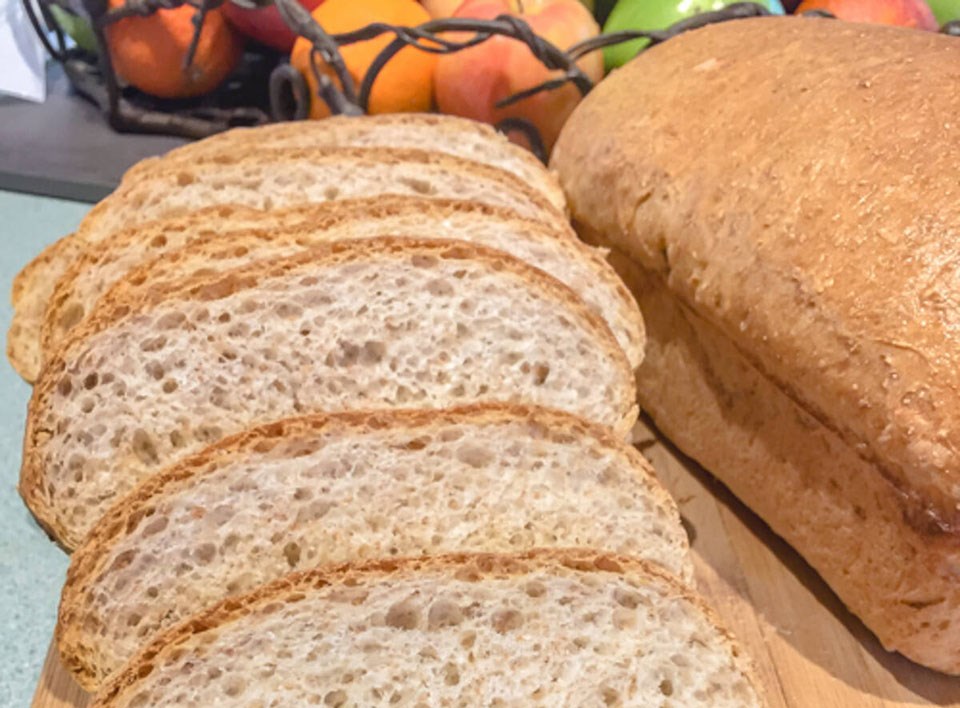WESTERN PRODUCER — Spring is busy for farm families, whether it’s school, sports or long stretches in the tractor.
A good lunch or late-night meal break in the cab doesn’t have to be complicated, but it does need to provide the right fuel. The best such meals for both kids and adults offer two key nutrients: fibre and protein. Together, these help you feel full longer, maintain steady energy and support better concentration and stamina throughout the day.
Sandwiches and wraps remain one of the easiest ways to deliver that fuel if you’re packing a lunchbox day after day. And yes, despite what you may hear or see in popular media or the , sandwiches can absolutely be part of a healthy die, especially when made with whole grain products and quality protein fillings.
Whole grains, unlike their refined versions (such as all-purpose flour), have been proven to help improve blood pressure and blood sugar levels while reducing the risk of cancer, obesity, stroke, heart disease, Type 2 diabetes, cognitive decline and high cholesterol.
Whole grains are those that contain all three parts of the grain kernel—the bran, the germ, and the endosperm. Refined grains have the bran and germ removed during processing. While this makes refined grains easier to store and bake with, it strips away valuable fibre and nutrients. Reaching for whole grain products whenever possible is a smart move for better nutrition.
Bread smarts: What to look for
It’s easy to get confused by the many package claims in the grocery store. Bread bags are peppered with labels like “multi-grain,” “ancient grains,” “all natural,” “organic” or “made with whole grains.”
“Multi-grain” sounds good, but unless those grains are whole, you may not get the fibre and nutrients you expect to be buying. Added colouring agents like caramel or molasses can also make bread appear more wholesome than it actually is.

Ignore front-of-packaging claims and use the nutrition label for accurate, reliable information when choosing the most nutritious food options. Image: Health Canada Sandwiches and wraps keep farmers fuelled during seeding
It’s best to ignore the marketing claims plastered to the front of the bag. Instead, go straight to the nutrition facts label and ingredient list.
When reading nutrition labels, whether for bread, tortilla wraps, buns, pitas, English muffins or bagels, here’s what to look for:
1. 100% Whole Grain
The first ingredient should be “ ” or “whole grain wheat flour.” Avoid breads where “wheat flour” or “enriched wheat flour” is listed first.
Although enriched flours have had some nutrients added back into them, they lack the fibre and nutrients that we’re looking for and that whole grain products naturally provide.
2. Fibre
Fibre plays a crucial role in digestion, blood sugar control and heart health. Look for two to five grams of fibre per slice or serving.
3. Salt and sugar
Salt is often added for flavour, texture, and to extend shelf life. Registered dietitian Leslie Beck recommends choosing breads with less than 200 milligrams of sodium per slice.
Sugar, likewise, is added for taste and to prevent bread from going stale too quickly. Look for the lowest sugar content possible. Sugar may appear on the ingredient list as sugar, glucose, fructose, molasses, caramel, brown sugar, honey or even raisin syrup.
4. Check portion size
Not all bread slices are created equal. When comparing breads, check the serving size line, which indicates the grams per slice. Loaves can vary from 30 to 45 grams per slice, while bagels can range from 55 to 85 grams. The size of your homemade bread or fresh bakery loaves can also vary greatly, depending on your cutting skills.
5. Use the “per cent daily value” rule
Want a shortcut? Use the “per cent daily value” data shown on the right side of nutrition labels. This offers an easy way to tell if the item contains a little or a lot of a certain nutrient. Five per cent or less of a nutrient’s daily value is considered low. Fifteen per cent or more is considered high.
When looking at bread options, look for low percentages of sodium and sugar and high numbers for fibre.
High quality fillings
Good bread is just the start. A hearty sandwich or wrap needs protein to keep energy levels steady through a long school day or an afternoon on the tractor. Flavour boosters and veggies add further nutrients, colour and satisfying texture.
Protein options
While deli meats like ham and salami are convenient, they’re often high in sodium, preservatives and added nitrates. Choose from the following options as often as possible:
• Shredded chicken, roast beef, pork roast or turkey slices.
• Tuna, salmon or egg salad
• Hummus, falafel or seasoned chickpeas
• Tofu or tempeh slices
• Beans or chickpeas
• Hard-boiled eggs
Flavour boosters
• Mustard, siracha, wasabi, tzatziki or chili crisp
• Spicy mayo, hot pepper or grape jelly
• Hummus, pesto or savoury yogurt spreads
• Pickled onions, sauerkraut, hot pepper rings or roasted peppers
Veggie add-ins
• Crisp lettuce, spinach, or shredded cabbage
• Sliced cucumber, sweet peppers or tomatoes
• Avocado, sliced beets, sliced apples or pears
• Fresh herbs like parsley, dill or cilantro
The key is to balance protein, fibre and flavour so that every bite is both satisfying and sustaining.
Three great sandwich ideas
Here are three easy recipes to kick-start your spring lunch planning. Each is packed with fibre, protein and plenty of flavour and they’re easy to prep ahead for busy days.
Sweet and savoury chicken wrap
Wraps are a tasty alternative to the classic sandwich and, when wrapped tightly in parchment paper or foil, they’re perfect for eating on the go in the tractor or at school. Use your favourite hot or savoury jelly for an extra kick of flavour. Makes: One wrap
Ingredients
• 1 whole grain wheat tortilla
• 3 tbsp cream cheese
• 2 tsp hot pepper jelly
• ½ cup cooked chicken, shredded or sliced
• ½ cup sweet bell peppers, sliced
• ½ cup fresh spinach leaves
Directions
- Lay the tortilla flat on a clean surface. Spread cream cheese evenly over the entire surface. Spoon hot pepper jelly over the cream cheese.
- Layer chicken, peppers and spinach over the bottom third of the tortilla.
- Roll up the tortilla tightly, tucking in the sides as you go.
- Slice in half to serve, or wrap tightly for packing.
Source: Gettystewart.com
Turkey and vegetable pita
Great for stuffing, pitas are another great alternative to sliced bread Makes: Four servings
Ingredients
• 1/3 cup no-fat plain Greek yogurt
• 2 tbsp light mayonnaise
• 1 tsp Dijon or yellow mustard
• ¼ tsp ground black pepper
• 1 ½ cups cooked turkey breast, chopped
• ½ cup red or green bell pepper, diced
• ¼ cup carrot, grated
• 2 whole grain pita pockets
• 4 leaves Boston lettuce
• ¼ large cucumber, thinly sliced
Directions
- In a large bowl, whisk together yogurt, mayonnaise, mustard and pepper. Stir in turkey, bell pepper and carrot until well coated.
- Cut pitas in half and open pockets. Tuck lettuce and cucumber slices into each half, then spoon in turkey mixture.
Source: Health Canada/ Emily Richards
Curried chickpea salad
High protein salads made with tuna, salmon or eggs make great sandwich fillings. Here’s another tasty filling made with chickpeas. Makes: Four servings
Ingredients
• 1 can (19 oz) lower sodium chickpeas, drained and rinsed
• 3 tbsp lower fat yogurt
• ¼ cup diced celery
• ¼ red onion, diced
• ¼ cup raisins
• 1 tomato, diced
• ½ tsp curry powder
• 1 tbsp apricot jam (optional)
• ½ tbsp lemon juice (about ½ a lemon)
• ¼ tsp black pepper
• Pinch of salt
Directions
- In a large bowl, mash chickpeas roughly with a fork or potato masher.
- Add all remaining ingredients and toss to combine.
- Cover and marinate in the refrigerator for 10–15 minutes before serving.
Source: Health Canada
About the author
Getty Stewart is a professional home economist, speaker and writer from Winnipeg. For more recipes, preserves and kitchen tips, visit www.gettystewart.com.
Related Coverage

